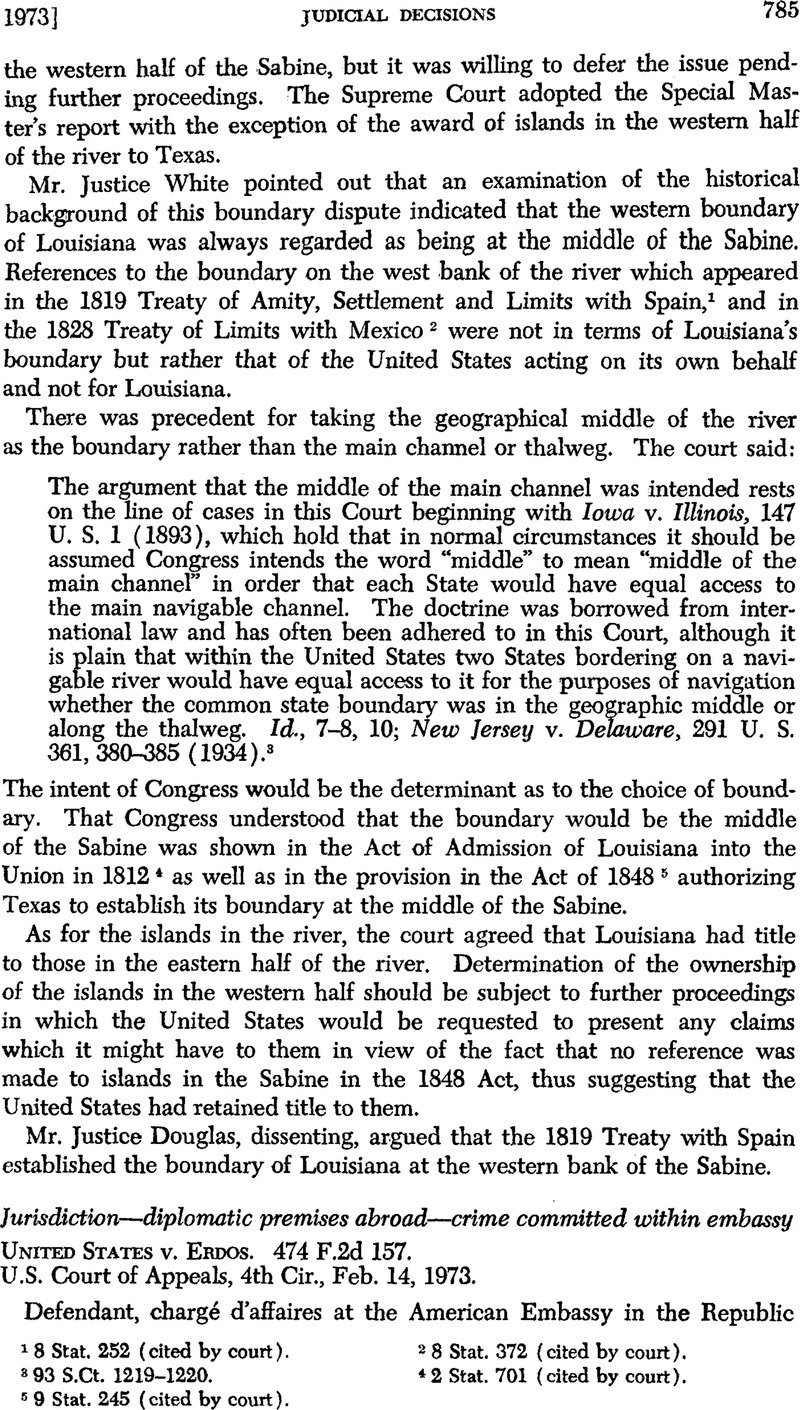No CrossRef data available.
Article contents
United States v. Erdos. 474 F.2d 157
Published online by Cambridge University Press: 28 March 2017
Abstract

- Type
- Judicial Decisions
- Information
- Copyright
- Copyright © American Society of International Law 1973
References
1 18 U.S.C. §7(3) provides:
The term “special maritime and territorial jurisdiction of the United States,” as used in this title, includes:
(3) Any lands reserved or acquired for the use of the United States, and under the exclusive or concurrent jurisdiction thereof, or any place purchased or otherwise acquired by the United States by consent of the legislature of the State in which the same shall be, for the erection of a fort, magazine, arsenal, dockyard, or other needful building.
2 474 F.2d 157, 160.
1 Section 22–1115 provided:
It shall be unlawful to display any flag, banner, placard, or device designed or adapted to intimidate, coerce, or bring into public odium any foreign government, party, or organization, or any officer or officers thereof, or to bring into public disrepute political, social, or economic acts, views, or purposes or any foreign government, party, or organization, or to intimidate, coerce, harass, or bring into public disrepute any officer or officers or diplomatic or consular representatives of any foreign government, or to interfere with the free and safe pursuit of the duties of any diplomatic or consular representatives of any foreign government, within five hundred feet of any building or premises within the District of Columbia used or occupied by any foreign government or its representative or representatives as an embassy, legation, consulate, or for other official purposes, except by, and in accordance with, a permit issued by the superintendent or police of the said District; or to congregate within five hundred feet of any such building or premises, and refuse to disperse after having been ordered so to do by the police authorities of the said District. 476 F.2d 511, 514 (quoted by court).
2 Pub. L. No. 92–539, 86 Stat. 1070 (1972) (cited by court).




